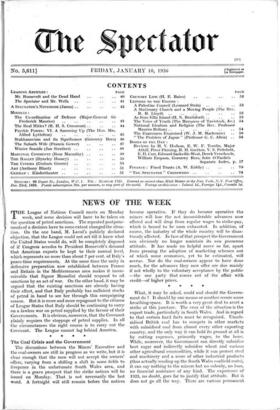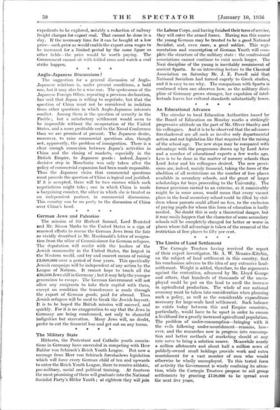What, it may be asked, could and should the Govern-
ment do ? It should by one means or another secure some breathing-space. It is worth a very great deal to avert a strike at this juncture. The crux of the situation is the export trade, particularly in South Wales. And in regard to that certain hard facts must be recognised. Unsub- sidised British coal has to compete in other markets with subsidised coal from almost every other exporting country, and the only way it can hold its ground at all is by cutting expenses, primarily wages, to the bone. While, moreover, the Government can directly subsidise beet sugar and indirectly subsidise wheat and various other agricultural commodities, while it can protect steel and machinery and a score of other industrial products (thus actually sending up the South Wales coalfield costs), it can say nothing to the miners but no subsidy, no loan, no financial assistance of any kind. The experience of 1925, no doubt, goes far to justify that attitude. But it does not go all the way. There are various permanent expedients to be explored, notably a reduction of railway freight charges for export coal. That cannot be done in a day. If the necessary time for it can be bought at a low price—such price as would enable the export area wages to be increased for a limited• period by the same figure as other fields—the price would be worth paying. The Government cannot sit with folded arms and watch a coal strike happen.











































